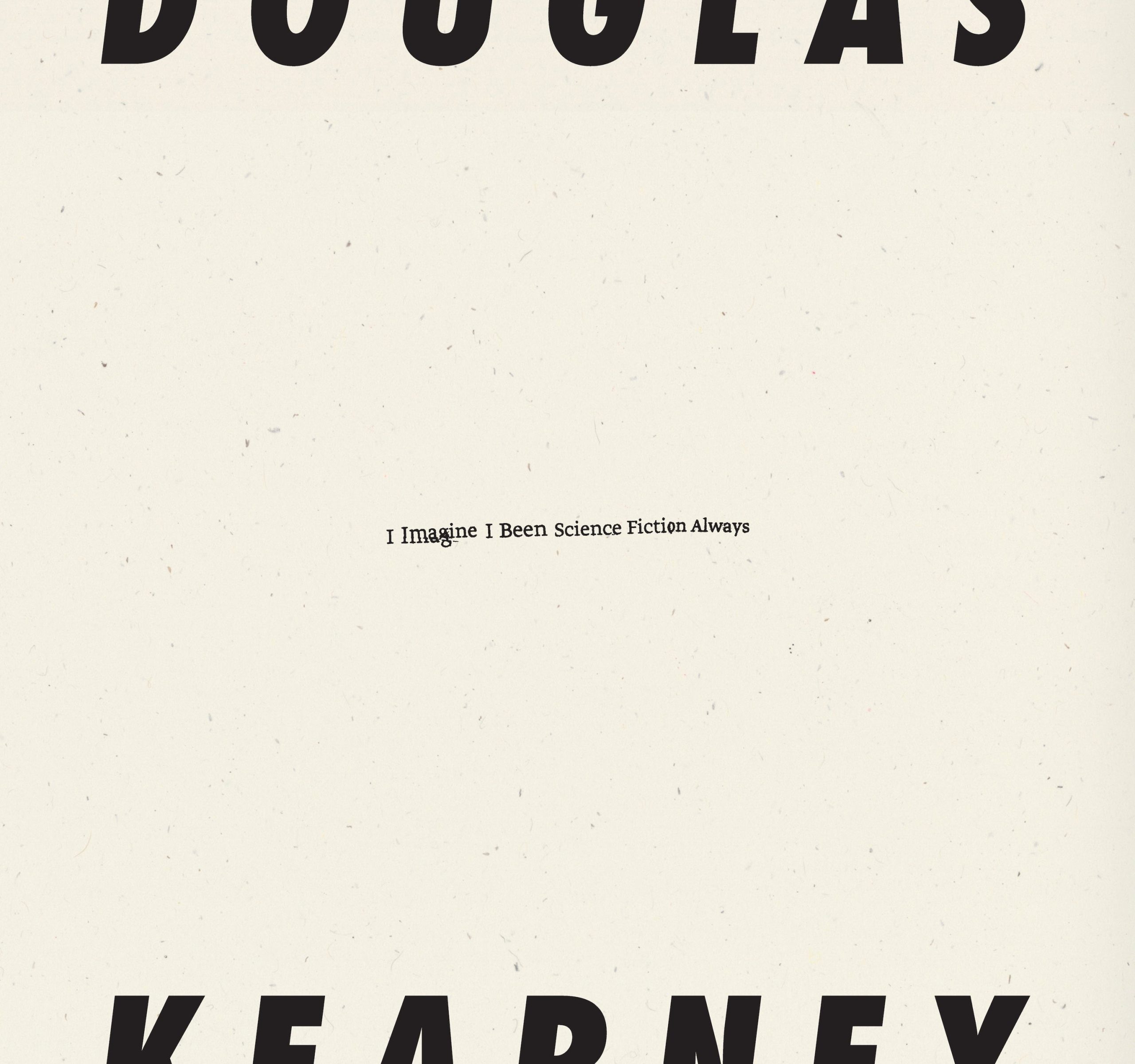WP_Post Object
(
[ID] => 19306
[post_author] => 14
[post_date] => 2024-12-30 15:22:34
[post_date_gmt] => 2024-12-30 21:22:34
[post_content] => On the heels of Sho (winner, Griffin Poetry Prize) and Optic Subwoof (Pegasus Award in Poetry Criticism), Douglas Kearney's visual poetry masterpiece, I Imagine I Been Science Fiction Always, pushes further into Kearney's long-time practices of performance typography, collaging pre-existing media sources to create singular, multiplicitous texts that defy neat categorization. Through AfroFuturistic exploration of these techniques, Kearney presents a sustained consideration of precarious Black subjectivity, cultural production as self-defense, the transhistoric emancipatory logics of the preposition over, Anarcho-Black temporal disruption, and seriocomic meditations on the material and metaphysical nature of shadow. Engaging a rich history of visual poetics, I Imagine I Been Science Fiction Always almost predicts its endurance as a visionary work of genius.
[post_title] => I Imagine I Been Science Fiction Always
[post_excerpt] =>
[post_status] => publish
[comment_status] => closed
[ping_status] => closed
[post_password] =>
[post_name] => i-imagine-i-been-science-fiction-always
[to_ping] =>
[pinged] =>
[post_modified] => 2025-01-17 14:08:28
[post_modified_gmt] => 2025-01-17 20:08:28
[post_content_filtered] =>
[post_parent] => 0
[guid] => https://blueflowerarts.com/?post_type=new-releases&p=19306
[menu_order] => 0
[post_type] => new-releases
[post_mime_type] =>
[comment_count] => 0
[filter] => raw
)
I Imagine I Been Science Fiction Always
On the heels of Sho (winner, Griffin Poetry Prize) and Optic Subwoof (Pegasus Award in Poetry Criticism), Douglas Kearney’s visual poetry masterpiece, I Imagine I Been Science Fiction Always, pushes further into Kearney’s long-time practices of performance typography, collaging pre-existing media sources to create singular, multiplicitous texts that defy neat categorization. Through AfroFuturistic exploration of these techniques, Kearney presents a sustained consideration of precarious Black subjectivity, cultural production as self-defense, the transhistoric emancipatory logics of the preposition over, Anarcho-Black temporal disruption, and seriocomic meditations on the material and metaphysical nature of shadow. Engaging a rich history of visual poetics, I Imagine I Been Science Fiction Always almost predicts its endurance as a visionary work of genius.

